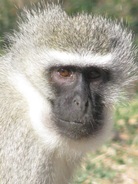Field Schools, etc.
Looking for experience?
Below is information on a few specific programs. Also be sure to check out these sites for updated announcements on upcoming volunteer, field school, research, internship, and job opportunities. For the programs listed below, all dates will be updated as they are available.
- NSF REUs (research experiences for undergraduates) application process explained: https://itatidoesthesci.wordpress.com/. Also see a list of them at the NSF site: www.nsf.gov/crssprgm/reu/reu_search.jsp
- Primate Jobs: http://pin.primate.wisc.edu/jobs/list/avail
- American Association of Anthropologists Biological Anthropology Section: http://www.aaanet.org/sections/bas/news/category/field-schools
- University of Arizona School of Anthropology: http://anthropology.arizona.edu/field-schools
- Duke Lemur Center Internships: http://lemur.duke.edu/engage/internships/
- Jane Goodall Institute Internships: http://www.janegoodall.org/internships
- Little Fireface Project (lorises) volunteer opportunities: http://www.nocturama.org/help-the-loris/volunteering/
Choosing a field school
I do not endorse any of the below field schools. These are listed for information only. Some dates are old, but are provided for an idea of when the current dates might be if the schools are currently operating.
A new website, Rate my Field School, has just popped up. If you've attended a field school, rate it! If you're looking for a field school, you might find this site helpful.
https://fieldschoolreviews.wordpress.com/reviews/
A new website, Rate my Field School, has just popped up. If you've attended a field school, rate it! If you're looking for a field school, you might find this site helpful.
https://fieldschoolreviews.wordpress.com/reviews/
Field Course in Primate Conservation Genetics, South Africa
|
Dates: TBA
Deadline to apply: March 30th, 2016 (for 2016 course) Hosted by: The University of Wisconsin - Milwaukee Instructors: Dr. Trudy Turner (UWM), Dr. Joseph Lorenz (Central Washington University) and Dr. Christopher Schmitt (Boston University) Description: Students will observe, study, and collect noninvasive genetic samples on wild non-human primates across South Africa, all while completing coursework on primate behavior, ecology, conservation, and genetics. The capstone of the course will be conducting a population genetics study on the samples YOU collect from the field in the Department of Genetics at the University of the Free State in Bloemfontein. At the end of the course, students will join the instructors as they present the work you've done at the 14th annual meeting of the South African Primatology Association (PEGG: http://www.peggweb.com/index.php) in Port Elizabeth. Credits: 6 undergraduate course credits through the University of Wisconsin, which are transferable to other universities. Deadline to apply is March 30th! See link above for details. For more information, see here. |
Non-Invasive Techniques and Applications in Wildlife Endocrinology
The purpose of this course, developed and taught by the experts at The National Zoo, is to provide theoretical information and practical experience in using endocrine monitoring techniques for assessing reproductive status and welfare in wildlife species, both in captive and wild scenarios. Includes lecture and lab, and independent projects
Dates: July 23 - Aug 2, 2018
Location: Smithsonian Conservation Biology Institute in Front Royal, Virginia
Deadline to apply: May 14, 2018 (applicants encouraged to apply early)
Cost: $2,925.50 (Course fee of $2,100 + Housing and Dining Package of $825.50). Those applying as citizens of “less-developed” nations qualify for a reduced course fee of $1,200, making the total cost including housing (shared double room) and dining package $2,025.50.
More info: Program flyer can be found here. Program website: SMconservation.gmu.edu
Dates: July 23 - Aug 2, 2018
Location: Smithsonian Conservation Biology Institute in Front Royal, Virginia
Deadline to apply: May 14, 2018 (applicants encouraged to apply early)
Cost: $2,925.50 (Course fee of $2,100 + Housing and Dining Package of $825.50). Those applying as citizens of “less-developed” nations qualify for a reduced course fee of $1,200, making the total cost including housing (shared double room) and dining package $2,025.50.
More info: Program flyer can be found here. Program website: SMconservation.gmu.edu
Primate Behavior, Bhutan
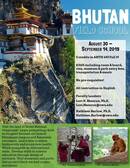
The Primate Behavior program at Central Washington University offers a field school in Bhutan to teach field techniques in primatology. See Assamese macaques and Himalayan langurs in their natural habitat!
Dates: August 30th through September 14th, 2019
More information: Contact Dr. Lori Sheeran (sheeranl[at]cwu.edu) or Dr. Kathleen Barlow (kathleen.barlow[at]cwu.edu) if interested. See flyer here.
Dates: August 30th through September 14th, 2019
More information: Contact Dr. Lori Sheeran (sheeranl[at]cwu.edu) or Dr. Kathleen Barlow (kathleen.barlow[at]cwu.edu) if interested. See flyer here.
Study Abroad Cuba
Based in Havana. Includes travel to Varadero, Pinar del Rio, Trinidad, Cienfuegos and more. Meet with artists, musicians, students, politicians, entrepreneurs and Cubans from all walks of life. Visit cooperatives, tourist developments, eco-reserves, heritage sites, Hemingway's house, and more!
Credits: 8 credits at the University of Arizona in Latin American Studies, Geography and Anthropology
Dates: June 15 - July 15 (approx.)
Cost: 4,800 + airfare
More information: See flyer here, or contact: Rudo Moyo at Study Abroad [email protected]; Dereka Rushbrook [email protected]; Marcela Vasquez-Leon [email protected]
To apply: http://global.arizona.edu/study-abroad/
Credits: 8 credits at the University of Arizona in Latin American Studies, Geography and Anthropology
Dates: June 15 - July 15 (approx.)
Cost: 4,800 + airfare
More information: See flyer here, or contact: Rudo Moyo at Study Abroad [email protected]; Dereka Rushbrook [email protected]; Marcela Vasquez-Leon [email protected]
To apply: http://global.arizona.edu/study-abroad/
Operation Wallacea
Operation Wallacea (Opwall) runs a series of biological and conservation management research programs in remote locations across the world. Undergraduate research assistant volunteers may participate and/or conduct senior theses at one of the locations. For more information, see opwall.com and https://www.youtube.com/watch?v=zuluQAneG-I&feature=youtu.be
Tróia, Portugal Summer School of Archaeology

Dates: June
More information: New fliers are at the printers, but for now, see here for more info. You can also contact Dr. David Soren: soren [at] email.arizona.edu
More information: New fliers are at the printers, but for now, see here for more info. You can also contact Dr. David Soren: soren [at] email.arizona.edu
"Arizona in Italy" Orvieto Study Abroad Program
Dates: Spring, Summer, and Fall semesters, and a Summer field school (join a scientific archaeological project in conjunction with the University of Perugia).
More information: Download flyer here.
Direct credit can be earned with the University of Arizona.
More information: Download flyer here.
Direct credit can be earned with the University of Arizona.
PrimatesPeru: Research Assistantships and Field Courses
|
Research and field courses with saki monkeys and tamarins at the Los Amigos Field Station.
Research Assistantships: See http://primatesperu.org/get-experience/research-volunteers/ Field courses on Tropical Biology and Primatology: See http://primatesperu.org/get-experience/courses-and-workshops/ and https://fieldprojects.org/ Field Projects International's Sensory Perception program Start Dates: July 5th or 12th, 2016 Minimum Stay: 4 weeks Application Deadline: May 16th, 2016 Program Fee: $450/week (includes room & board, all meals, and travel from Puerto Maldonado to the field site) |
Madagascar Past and Present: Biodiversity, Extinction & Conservation in Tsinjoarivo, Madagascar
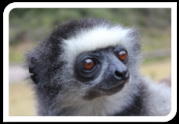
Dates: June 7 - July 7, 2019
Topics: Topics include (1) goals and methods of studying primates in the wild, (2) Madagascar's evolutionary history and recent extinctions, including lab work at the University of Antananarivo and (3) current conservation threats. The course is largely experiential, with an independent project (on either extant fauna or recently extinct lemurs) dominating the students' time in the field. Whereas the main focus is primates (specifically lemurs, extinct and extant), students interested in studying other elements of the ecosystem are welcome.
For more information, see the flyer. For a nice description of the program, see here: http://www.niutoday.info/2013/10/07/something-wild/
Or see: http://www.sadabe.org/studyabroad2019.html and http://www.niu.edu/studyabroad
Run by Northern Illinois University, SADABE, and the University of Antananarivo
Topics: Topics include (1) goals and methods of studying primates in the wild, (2) Madagascar's evolutionary history and recent extinctions, including lab work at the University of Antananarivo and (3) current conservation threats. The course is largely experiential, with an independent project (on either extant fauna or recently extinct lemurs) dominating the students' time in the field. Whereas the main focus is primates (specifically lemurs, extinct and extant), students interested in studying other elements of the ecosystem are welcome.
For more information, see the flyer. For a nice description of the program, see here: http://www.niutoday.info/2013/10/07/something-wild/
Or see: http://www.sadabe.org/studyabroad2019.html and http://www.niu.edu/studyabroad
Run by Northern Illinois University, SADABE, and the University of Antananarivo
Stony Brook University Madagascar Study Abroad, Ranomafana, Madagascar
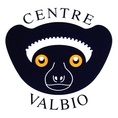
Three programs (winter, summer, and fall) are held through Stony Brook University.
Summer Courses: Comparative Ecoregions of Madagascar (cross-country trip), Culture and Language of Madagascar, and Independent Research
Fall Courses: Primate Behavior and Ecology, Ecosystem Diversity and Evolution (cross-country trip), Field Methods in Primatology and Field Biology, and Independent Research
Winter course: Experiential learning in environmental arts, health, conservation education, IT and engineering, water and climate, and/or reptiles and amphibians. For Winter 2017 (Jan. 1-22, 2017), see here. Applications due Oct. 1, 2016
For more information, see flier here and website here. For program cost and other details, or to apply: summer, fall, winter. Contact Alison Becker ([email protected]) with questions.
Summer Courses: Comparative Ecoregions of Madagascar (cross-country trip), Culture and Language of Madagascar, and Independent Research
Fall Courses: Primate Behavior and Ecology, Ecosystem Diversity and Evolution (cross-country trip), Field Methods in Primatology and Field Biology, and Independent Research
Winter course: Experiential learning in environmental arts, health, conservation education, IT and engineering, water and climate, and/or reptiles and amphibians. For Winter 2017 (Jan. 1-22, 2017), see here. Applications due Oct. 1, 2016
For more information, see flier here and website here. For program cost and other details, or to apply: summer, fall, winter. Contact Alison Becker ([email protected]) with questions.
Primates of South Africa Field Course, South Africa
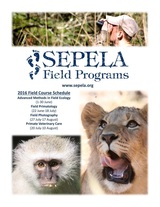
Dates: June 1 - June 30, 2016 (Advanced Methods in Field Ecology); June 22 - July 18, 2016 (Field Primatology); July 27 - August 17, 2016 (Field Photography); July 20 - August 10, 2016 (Primate Veterinary Care)
Instructors: Dr. Brandi Wren (Field Primatology); Dr. Héctor Cabañes (Primate Veterinary Care); Dr. Paula Pebsworth (Animal-Plant Interactions)
Topics: Primatology field methods, S. Africa wildlife and ecology. Includes techniques for collecting behavioral, ecological, and population data. Learn how to track and identify wildlife through dung, tracks, and other spoor. Observe South Africa's nonhuman primate species (Papio ursinus, Chlorocebus aethiops, Cercopithecus mitis, Galago moholi, & Otolemur crassicaudatus), and nonprimate species including lions, elephants, giraffes, & rhinos. Visit primate research sites, Sterkfontein Caves, Kruger National Park, and other important sites. All 2016 courses take place in South Africa, and all are based on immersive learning. Students travel South Africa, staying at field sites and practicing methods in their respective fields. All courses include a field safety/bush skills component, and three of the four courses include Wilderness First Aid training and certification.
For more information: see www.sepela.org or contact them through email at info[at]sepela.org.
Instructors: Dr. Brandi Wren (Field Primatology); Dr. Héctor Cabañes (Primate Veterinary Care); Dr. Paula Pebsworth (Animal-Plant Interactions)
Topics: Primatology field methods, S. Africa wildlife and ecology. Includes techniques for collecting behavioral, ecological, and population data. Learn how to track and identify wildlife through dung, tracks, and other spoor. Observe South Africa's nonhuman primate species (Papio ursinus, Chlorocebus aethiops, Cercopithecus mitis, Galago moholi, & Otolemur crassicaudatus), and nonprimate species including lions, elephants, giraffes, & rhinos. Visit primate research sites, Sterkfontein Caves, Kruger National Park, and other important sites. All 2016 courses take place in South Africa, and all are based on immersive learning. Students travel South Africa, staying at field sites and practicing methods in their respective fields. All courses include a field safety/bush skills component, and three of the four courses include Wilderness First Aid training and certification.
For more information: see www.sepela.org or contact them through email at info[at]sepela.org.
Primates, Ecology, and Conservation in Indonesia

Dates: June 1 - 26, 2014 (see link below for updated information)
Application deadline: March 1, 2014
Topics: Two courses, 10-days each: Applied Conservation and Ecosystem Management will be held in Halimun National Park, and Advanced Primate Behavior and Ecology will occur in Tuanan Biological Research Station.
Cost: ~$5,000 (Scholarships for most deserving students available!!!)
Instructors: Drs. Erin Vogel and Rob Scott, Rutgers University
For more information, syllabi, credits, course cost, etc., see here.
Application deadline: March 1, 2014
Topics: Two courses, 10-days each: Applied Conservation and Ecosystem Management will be held in Halimun National Park, and Advanced Primate Behavior and Ecology will occur in Tuanan Biological Research Station.
Cost: ~$5,000 (Scholarships for most deserving students available!!!)
Instructors: Drs. Erin Vogel and Rob Scott, Rutgers University
For more information, syllabi, credits, course cost, etc., see here.
Primate Behavior & Conservation in Costa Rica
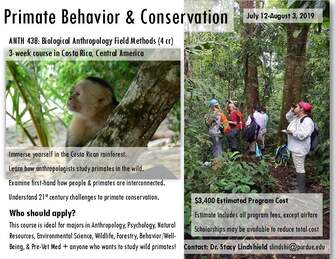
New in 2019!
Dates: 3 weeks, July 12 - August 3, 2019
Topics: see link below for more information. 4-credit course in Biological Anthropology Field Methods teaches primatology field methods, how humans and primates interact, and 21st century challenges to primate conservation. Spend two weeks at El Zota Biological Field Station observing spider monkeys, howler monkeys, and capuchins, and one week at Gandoca-Manzanillo Wildlife Refuge. The program is run by Dr. Stacy Lindshield out of Purdue University.
Application deadline: see link below.
For more information on course content, deadlines, program dates, and application materials, see here.
Dates: 3 weeks, July 12 - August 3, 2019
Topics: see link below for more information. 4-credit course in Biological Anthropology Field Methods teaches primatology field methods, how humans and primates interact, and 21st century challenges to primate conservation. Spend two weeks at El Zota Biological Field Station observing spider monkeys, howler monkeys, and capuchins, and one week at Gandoca-Manzanillo Wildlife Refuge. The program is run by Dr. Stacy Lindshield out of Purdue University.
Application deadline: see link below.
For more information on course content, deadlines, program dates, and application materials, see here.
Šalitrena Paleolithic and Paleoanthropology Field School, Western Serbia
Dates: TBD
Instructor: Miriana Roksandic
For more information: see here or flier here.
Or contact: Professor Roksandic at m.roksandic [at] uwinnipeg.ca or mroksandic [at] gmail.com
Instructor: Miriana Roksandic
For more information: see here or flier here.
Or contact: Professor Roksandic at m.roksandic [at] uwinnipeg.ca or mroksandic [at] gmail.com
Cleveland Amory Black Beauty Ranch Internship
Murchison, TX
For individuals looking to gain experience in the field of animal welfare. Interns at Black Beauty have the opportunity to gain valuable hands-on animal care experience, knowledge about a variety of species, and exposure to the operations of an animal care center.
For more information: see here or flier here.
Positions are unpaid, but students may receive credit, and housing may be available.
For more information: see here or flier here.
Positions are unpaid, but students may receive credit, and housing may be available.
Ecology, Evolution, and the Peoples of South Africa
Cape Town, Johannesburg, and Kruger National Park, South Africa
Dates: July 2 -24, 2018
Instructors: Kaye Reed, Gary Schwartz, David Feary
For more information: see flyer here, and find all the details here: https://studyabroad.asu.edu/index.cfm?FuseAction=Programs.ViewProgram&Program_ID=11112
Instructors: Kaye Reed, Gary Schwartz, David Feary
For more information: see flyer here, and find all the details here: https://studyabroad.asu.edu/index.cfm?FuseAction=Programs.ViewProgram&Program_ID=11112
DANTA field course in Primate Behavior and Conservation, Osa Peninsula, Costa Rica
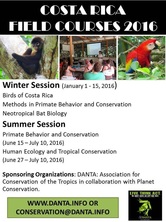
Dates and Deadline: See website for updated information for 2018
Guest Speaker: Christina Campbell (2016)
Topics: "This course is designed to provide students with field experience in primate behavior, ecology, and conservation. The course will be conducted at Osa Conservation‘s Piro Research Station in Costa Rica’s spectacular Osa peninsula. Courses are intended for undergraduates or early graduate level students who have a keen interest in tropical biology and conservation, but have little or no experience of working in a tropical environment. Participants may enroll on either a credit or non-credit basis."
For more information: 'Like' DANTA: Association for Conservation of the Tropics on Facebook. Also see http://www.danta.info or email them at [email protected]
Guest Speaker: Christina Campbell (2016)
Topics: "This course is designed to provide students with field experience in primate behavior, ecology, and conservation. The course will be conducted at Osa Conservation‘s Piro Research Station in Costa Rica’s spectacular Osa peninsula. Courses are intended for undergraduates or early graduate level students who have a keen interest in tropical biology and conservation, but have little or no experience of working in a tropical environment. Participants may enroll on either a credit or non-credit basis."
For more information: 'Like' DANTA: Association for Conservation of the Tropics on Facebook. Also see http://www.danta.info or email them at [email protected]
Koobi Fora Field School, Turkana Basin, Kenya
Dates: June 14th - July 26th
Topics: 4-credit collaborative research and training program in hominid paleobiology
For more information: see flyer here and video here.
Topics: 4-credit collaborative research and training program in hominid paleobiology
For more information: see flyer here and video here.
Durrell Conservation Academy Conservation Training Courses: Various Locations

Three levels of courses in various locations on various topics.
Level 1: Introduction to conservation theory and practice
Level 2: Specialisms in conservation practice
Level 3: Conservation management and leadership
For more information, see here: http://www.durrell.org/academy/Courses/
Level 1: Introduction to conservation theory and practice
Level 2: Specialisms in conservation practice
Level 3: Conservation management and leadership
For more information, see here: http://www.durrell.org/academy/Courses/
TREE (Tropical Research in Ecology and Ethology)
Primate Behavior and Primate Conservation Field Schools: El Zota, Tapezco, Costa Rica (other courses and locations on website)
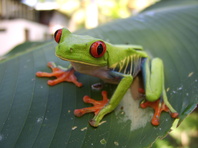
2016 Dates: Primate Behavior: June 12 - July 2; Primate Conservation: July 11-24. Other courses: Tropical Ecology, Tropical Herpetology, Tropical Entomology
Location: Biological Field Station El Zota, Tapezco, Costa Rica
Cost: Primate Behavior: $2,895 USD (excludes airfare); Primate Conservation: $2,100 (excludes airfare)
Deadline: March 15, 2016
Topics: See course descriptions here.
Instructor: Eric Hileman: ehileman1[at] niu.edu (instructor, for course info) and Grainne McCabe: gmmcabe[at]bristolzoo.org.uk.
For more information, see the TREE website: http://treefieldstudies.wordpress.com/courses-2/tropical-herpetology-in-costa-rica/
Or contact: treefieldstudies[at]gmail.com (for application info)
Location: Biological Field Station El Zota, Tapezco, Costa Rica
Cost: Primate Behavior: $2,895 USD (excludes airfare); Primate Conservation: $2,100 (excludes airfare)
Deadline: March 15, 2016
Topics: See course descriptions here.
Instructor: Eric Hileman: ehileman1[at] niu.edu (instructor, for course info) and Grainne McCabe: gmmcabe[at]bristolzoo.org.uk.
For more information, see the TREE website: http://treefieldstudies.wordpress.com/courses-2/tropical-herpetology-in-costa-rica/
Or contact: treefieldstudies[at]gmail.com (for application info)
Institute for Tropical Ecology and Conservation (ITEC): Bocas del Toro, Panama
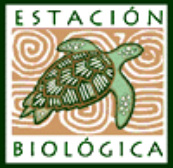
2013-2014 Schedule
Winter: Dec 20-Jan 9
Summer A: May 15-Jun 9
Summer B: Jun 15-Jul 10
Summer C: Jul 15-Aug 9
Ecology and Conservation Biology: Jul 9-Jul 31
Topics: Animal behavior, primate ecology, neotropical ornithology, coral reef ecology, tropical ethnobotany, conservation biology, tropical rain forest and canopy ecology, canopy access techniques
For more information about the various courses, registration deadlines, etc. see: http://www.itec-edu.org/info.html#course. For an application see here.
Winter: Dec 20-Jan 9
Summer A: May 15-Jun 9
Summer B: Jun 15-Jul 10
Summer C: Jul 15-Aug 9
Ecology and Conservation Biology: Jul 9-Jul 31
Topics: Animal behavior, primate ecology, neotropical ornithology, coral reef ecology, tropical ethnobotany, conservation biology, tropical rain forest and canopy ecology, canopy access techniques
For more information about the various courses, registration deadlines, etc. see: http://www.itec-edu.org/info.html#course. For an application see here.
Primatology, Wildlife Ecology, and Conservation Field School: Kenya

Dates: July 31 - August 26, 2014
Topics: Biodiversity, primatology, conservation
Course fees: $4,350 for New Jersey students; $5,350 for out-of-state students
Application deadline: March 1, 2014
Instructors: Luca Morino (director), with participation by Ryne Palombit
For more information, contact Dr. Morino: morino [at] rutgers.edu. Or download the flyer here. Or see the Rutgers University website: http://primate.rutgers.edu/overview.html
Topics: Biodiversity, primatology, conservation
Course fees: $4,350 for New Jersey students; $5,350 for out-of-state students
Application deadline: March 1, 2014
Instructors: Luca Morino (director), with participation by Ryne Palombit
For more information, contact Dr. Morino: morino [at] rutgers.edu. Or download the flyer here. Or see the Rutgers University website: http://primate.rutgers.edu/overview.html
Turkana Basin Institute Field Schools, Turkana Basin, Kenya
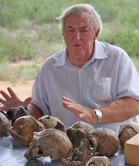
Dates: Origins Summer Program and Origins Semester Abroad
Topics: Modern environments, geology, paleocology, vertebrate paleontology, paleoanthropological discoveries, and archaeology of the Turkana Basin.
Instructors: Several faculty including the Leakey family!
For more information, contact Jennifer Green, Study Abroad advisor at Stony Brook University: jennifer.green[at]stonybrook.edu. Also see flier here. And website here: http://www.kenyastudyabroad.org
Topics: Modern environments, geology, paleocology, vertebrate paleontology, paleoanthropological discoveries, and archaeology of the Turkana Basin.
Instructors: Several faculty including the Leakey family!
For more information, contact Jennifer Green, Study Abroad advisor at Stony Brook University: jennifer.green[at]stonybrook.edu. Also see flier here. And website here: http://www.kenyastudyabroad.org
Paleoanthropology Field School, Dmanisi, Republic of Georgia

Dates: Last week in July through August
Topics: Participate in an archaeological excavation and learn about paleontology.
See more info on facebook page: https://www.facebook.com/DmanisiFieldSchool
And here: http://www.aim.uzh.ch/morpho/wiki//Teaching/Dmanisi
And download the flier here.
Topics: Participate in an archaeological excavation and learn about paleontology.
See more info on facebook page: https://www.facebook.com/DmanisiFieldSchool
And here: http://www.aim.uzh.ch/morpho/wiki//Teaching/Dmanisi
And download the flier here.
Drimolen Cave Field School, Krugersdorp, South Africa: Washington University Summer Program

Dates: June 5 - 26, 2019; Application deadline 2/15/19
Topics: Excavate for fossils and learn about human origins at an important paleoanthropological site, all while earning class credit through Washington University in St. Louis.
For more information see: https://tinyurl.com/ycfvprb8; for videos and photos, search on FB for Drimolen Field School.
Topics: Excavate for fossils and learn about human origins at an important paleoanthropological site, all while earning class credit through Washington University in St. Louis.
For more information see: https://tinyurl.com/ycfvprb8; for videos and photos, search on FB for Drimolen Field School.
Primate Studies Field School: Rwanda Study Abroad, University of Arizona
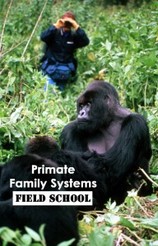
Summer 2016
Duration: 4 weeks
Application deadline: February 15, 2016. Request application online: www.studyabroad.arizona.edu
Credit may be earned for participation (at UA you will receive 6 credits in any of the following: FSHD493E/693, ANTH495D/595D, PSYCH 499/599)
Topics: The dynamics of primate social relationships, connection to social systems and local ecology; quantitative field techniques. Visit the Virunga volcanoes, afro-alpine jungle, and the savanna. See monkeys, chimpanzees and gorillas!
For more information see: http://primatefieldschool.arizona.edu/
contact Dieter Steklis (steklis[at]arizona.edu), Netzin Steklis (nsteklis[at]arizona.edu), or Harmony DeFazio (defazioh[at]email.arizona.edu). See also studyabroad.arizona.edu/financing for information on program costs, financial aid, and scholarships.
Duration: 4 weeks
Application deadline: February 15, 2016. Request application online: www.studyabroad.arizona.edu
Credit may be earned for participation (at UA you will receive 6 credits in any of the following: FSHD493E/693, ANTH495D/595D, PSYCH 499/599)
Topics: The dynamics of primate social relationships, connection to social systems and local ecology; quantitative field techniques. Visit the Virunga volcanoes, afro-alpine jungle, and the savanna. See monkeys, chimpanzees and gorillas!
For more information see: http://primatefieldschool.arizona.edu/
contact Dieter Steklis (steklis[at]arizona.edu), Netzin Steklis (nsteklis[at]arizona.edu), or Harmony DeFazio (defazioh[at]email.arizona.edu). See also studyabroad.arizona.edu/financing for information on program costs, financial aid, and scholarships.
Primate Behavior and Ecology Field School: La Suerte Biological Field Station, Costa Rica
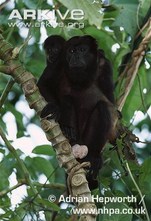
Summer and Winter 2016, 2017
Dates: Dec. 27, 2016 - Jan 8, 2017. Also check online, as there are several sessions.
Course fees: $2095 (includes registration, station/program fee, meals, room & board, transportation to and from airport.
Topics: Behavior and ecology of old and new world primates; species at the sanctuary include white-faced capuchins and mantled howler monkeys. Learn data collection techniques, design and conduct your own study.
Field site: La Suerte Biological Field Station is a protected sanctuary consisting of rivers, swamps, and rainforest. It is managed by Maderas Rainforest Conservancy.
For information on this and other courses see the Maderas Rainforest Conservancy website. To see course dates, click on the application link and scroll down to the season of interest.
Dates: Dec. 27, 2016 - Jan 8, 2017. Also check online, as there are several sessions.
Course fees: $2095 (includes registration, station/program fee, meals, room & board, transportation to and from airport.
Topics: Behavior and ecology of old and new world primates; species at the sanctuary include white-faced capuchins and mantled howler monkeys. Learn data collection techniques, design and conduct your own study.
Field site: La Suerte Biological Field Station is a protected sanctuary consisting of rivers, swamps, and rainforest. It is managed by Maderas Rainforest Conservancy.
For information on this and other courses see the Maderas Rainforest Conservancy website. To see course dates, click on the application link and scroll down to the season of interest.
Primate Behavior and Ecology Field School: Ometepe Biological Field Station, Nicaragua
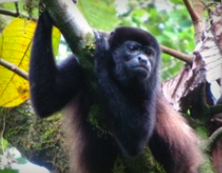
Winter 2016, 2017
Dates: Dec 26, 2016 - Jan 4, 2017
Topics: Data collection techniques, socio-ecological theory, design and conduct own independent study. Equivalant to an upper-level university course with more emphasis on research design, field techniques, and data collection. Consists of lectures, presentations, discussions, field work.
Course fees: $2095 (includes registration, program/station fee, meals, room/board, transportation to/from local airport.
For more information see flier here and website here.
Dates: Dec 26, 2016 - Jan 4, 2017
Topics: Data collection techniques, socio-ecological theory, design and conduct own independent study. Equivalant to an upper-level university course with more emphasis on research design, field techniques, and data collection. Consists of lectures, presentations, discussions, field work.
Course fees: $2095 (includes registration, program/station fee, meals, room/board, transportation to/from local airport.
For more information see flier here and website here.
Primatology Field Methods: Lemur Conservation Foundation, Myakka City, Florida

Photo credit: Caitlin Wilson
Summer 2014 (will be updated as more information becomes available)
Dates: June 15th - June 23rd, 2014
Course fee: $1675 (includes tuition, lodging, meals, ground transportation in Florida)
Enrollment: For more information on how to get credit at your university, information on the program, and an application: http://www.lemurreserve.org/vasey.html and see the flyer here.
Application due date: Preference given to those applying by Fall term.
For more information contact Dr. Natalie Vasey: nvasey[at]pdx.edu
Dates: June 15th - June 23rd, 2014
Course fee: $1675 (includes tuition, lodging, meals, ground transportation in Florida)
Enrollment: For more information on how to get credit at your university, information on the program, and an application: http://www.lemurreserve.org/vasey.html and see the flyer here.
Application due date: Preference given to those applying by Fall term.
For more information contact Dr. Natalie Vasey: nvasey[at]pdx.edu
Primate Behavior and Ecology Field School: Danau Girang Field Centre, Lower Kiabatangan Wildlife Sanctuary, Sabah, Borneo

Summer 2017 (deadline January 31, 2017)
Dates: July 24th - August 7th, 2017
Topics: Radio-tracking diurnal and nocturnal primates; constructing habitat and phenology profiles; behavioral sampling techniques; parasite analysis; primate census techniques; acoustics. Lectures will be also be given that introduce concepts in primate behaviour and ecology, current topics in primate research, and a range of research methods. You may be able to arrange independent study or dissertation credit from your university. Primates present at the site include: orang-utan, proboscis monkey, silver langur, Bornean gibbon, long-tail macaque, pig-tail macaque, maroon langur, western tarsier and Bornean slow loris.
Application and Poster (click each to download)
Application fee: £200
Course fee: £1200 (excludes airfare)
Additional information: 8-15 students
For more information contact Danica Stark: danicastark[at]gmail.com
See also: http://www.cardiff.ac.uk/biosi/facilities/danaugirangfieldcentre/index.html or visit “Danau Girang Field Centre” on Facebook to see what is currently happening at the field station and to see more pictures of the site and surrounding wildlife.”
Dates: July 24th - August 7th, 2017
Topics: Radio-tracking diurnal and nocturnal primates; constructing habitat and phenology profiles; behavioral sampling techniques; parasite analysis; primate census techniques; acoustics. Lectures will be also be given that introduce concepts in primate behaviour and ecology, current topics in primate research, and a range of research methods. You may be able to arrange independent study or dissertation credit from your university. Primates present at the site include: orang-utan, proboscis monkey, silver langur, Bornean gibbon, long-tail macaque, pig-tail macaque, maroon langur, western tarsier and Bornean slow loris.
Application and Poster (click each to download)
Application fee: £200
Course fee: £1200 (excludes airfare)
Additional information: 8-15 students
For more information contact Danica Stark: danicastark[at]gmail.com
See also: http://www.cardiff.ac.uk/biosi/facilities/danaugirangfieldcentre/index.html or visit “Danau Girang Field Centre” on Facebook to see what is currently happening at the field station and to see more pictures of the site and surrounding wildlife.”
Field and GIS tools for monitoring biodiversity: Udzungwa Mountains National Park, Tanzania
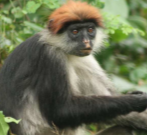
Summer 2013 (will be updated when new information is released)
Dates: August 24 - September 6, 2013
What: Tropical biodiversity field and GIS tools for monitoring, assessing, and mapping. Includes a complementary module on terrestrial arthropods.
Details: Download brochure here.
For more information see here: http://www.mtsn.tn.it/INGLESE/ing_sezioni/sum-sch12.asp
Dates: August 24 - September 6, 2013
What: Tropical biodiversity field and GIS tools for monitoring, assessing, and mapping. Includes a complementary module on terrestrial arthropods.
Details: Download brochure here.
For more information see here: http://www.mtsn.tn.it/INGLESE/ing_sezioni/sum-sch12.asp
Off the Beaten Track: Summer School for Anthropologists and Social Scientists: Gozo, Malta
|
Spring 2017: Graphic Anthropology Field School
Dates: April 1-14 Cost: 1,450 Euros What: The workshop aims to deepen insights about the possibilities and limits of graphic anthropology. Through collective field trips, targeted exercises and debate sessions, participants will explore the possibilities of sketching in field notes, self reflections and research reports. Goals: 1) Develop graphic skills as an observation technique; 2) Learn the grammar and vocabulary of graphic novels; 3) Explore how to build a graphic research report; 4) Spread the use of drawings in anthropology and other social sciences. For more information: http://www.anthropologyfieldschool.org/page57/index.html |

Summer 2017
Dates: June 7-26 (session 1); July 3-22 (session 2); July 29-August 17 (session 3)
Cost: 2,850 Euros
What: Run by University of Leuven, Belgium. Focuses on ethnographic studies. The five working days of each week will be reserved for fieldwork, fieldtrips and activities, and personalized discourse with academic experts. The staff - student ratio is one on two (max. 14 students per session). Participation in this project provides participants insight in the trade and craftsmanship of the anthropologist in the field. The project creates an intensive and individual master-apprentice situation.
Details: Download more information, including additional optional courses here. Find scholarship information here (due Jan 9). For Anthropology of Food-focused course, see here.
For more information see here: http://www.anthropologyfieldschool.org/index.html
Dates: June 7-26 (session 1); July 3-22 (session 2); July 29-August 17 (session 3)
Cost: 2,850 Euros
What: Run by University of Leuven, Belgium. Focuses on ethnographic studies. The five working days of each week will be reserved for fieldwork, fieldtrips and activities, and personalized discourse with academic experts. The staff - student ratio is one on two (max. 14 students per session). Participation in this project provides participants insight in the trade and craftsmanship of the anthropologist in the field. The project creates an intensive and individual master-apprentice situation.
Details: Download more information, including additional optional courses here. Find scholarship information here (due Jan 9). For Anthropology of Food-focused course, see here.
For more information see here: http://www.anthropologyfieldschool.org/index.html
Isla Mujeres Ethnographic Field School: Mexico
Summer 2017
|
Advanced Ethnographic Methods
New 8-week session June 3 - July 30 |
Ethnographic Methods Practicum
Two 3-Week Sessions During Advanced Ethnographic Methods course |
For more information, see www.anthrofieldschool.com, or the Facebook page at https://www.facebook.com/Islamujeresethnographicfieldschool
